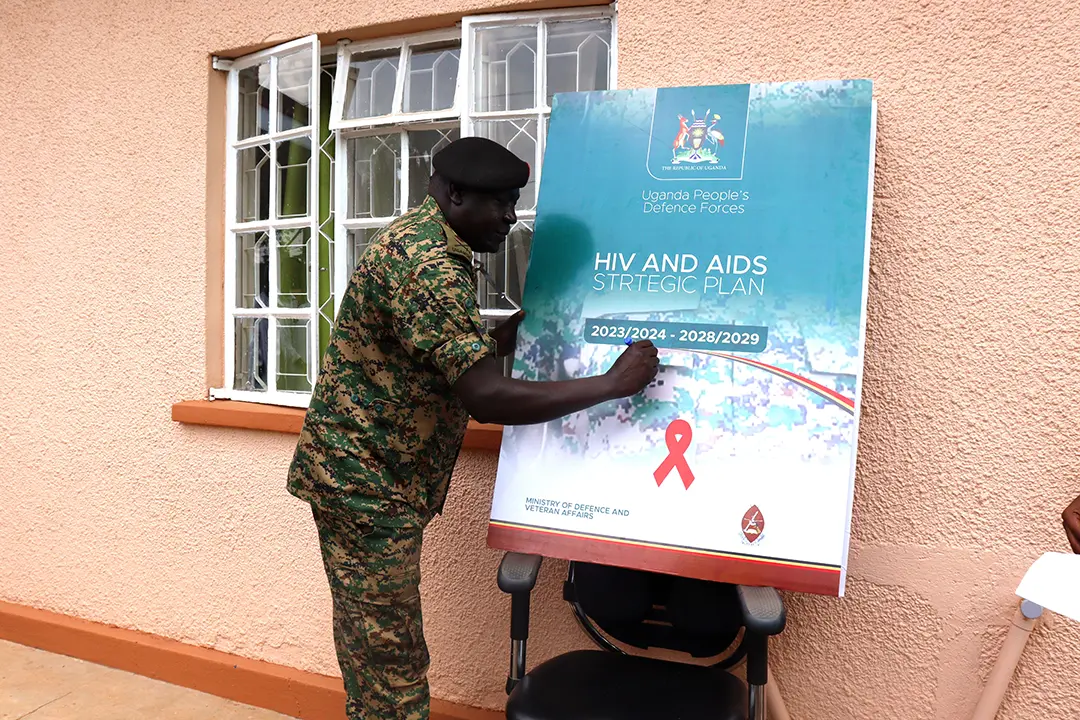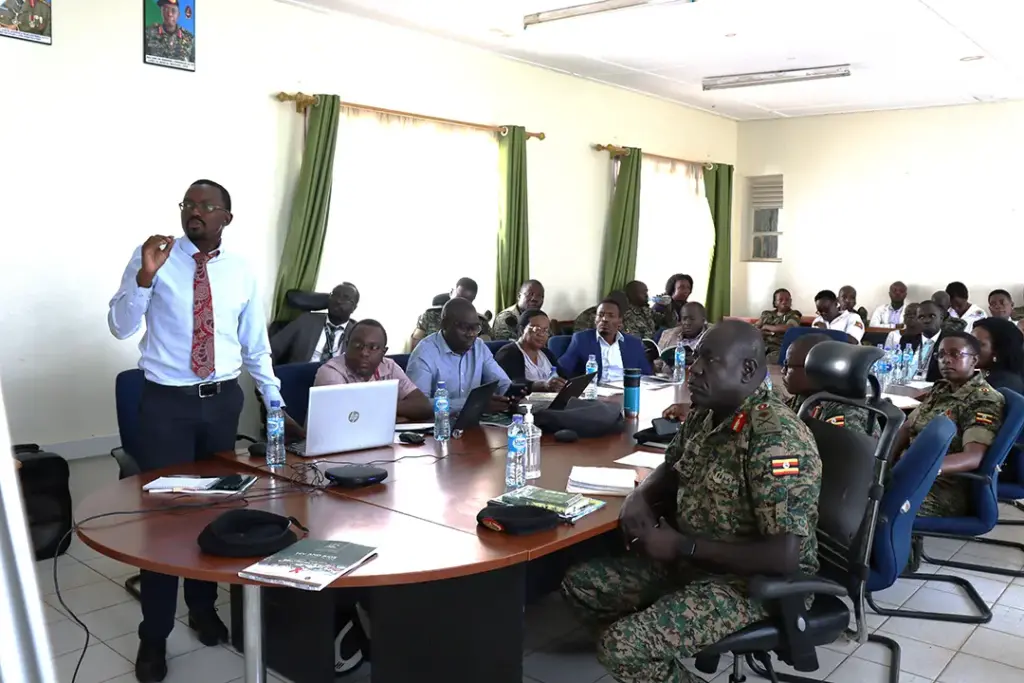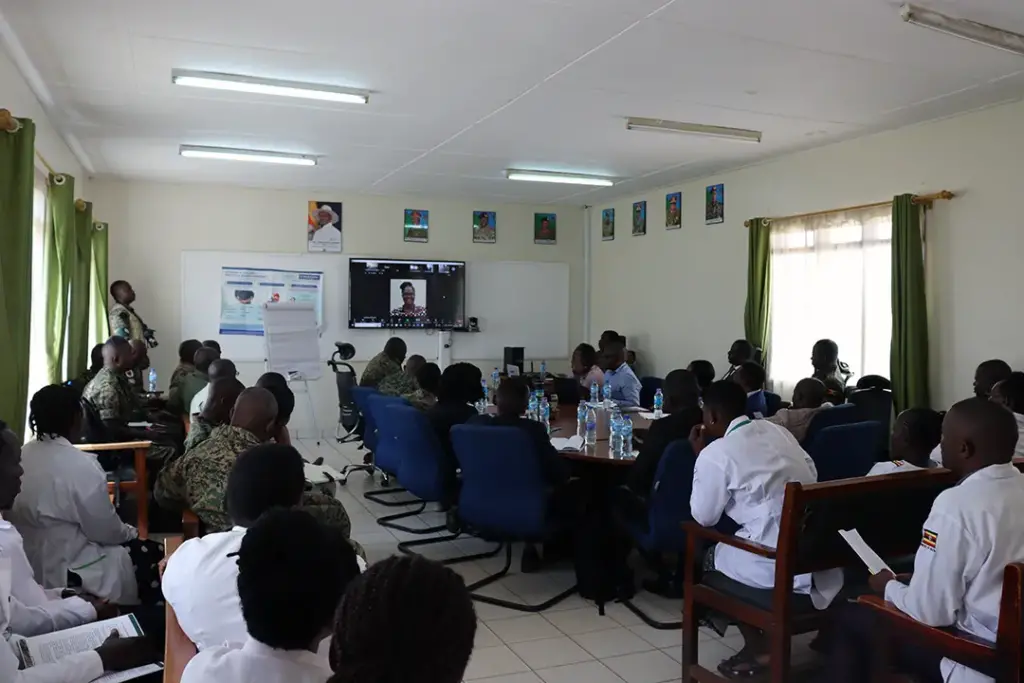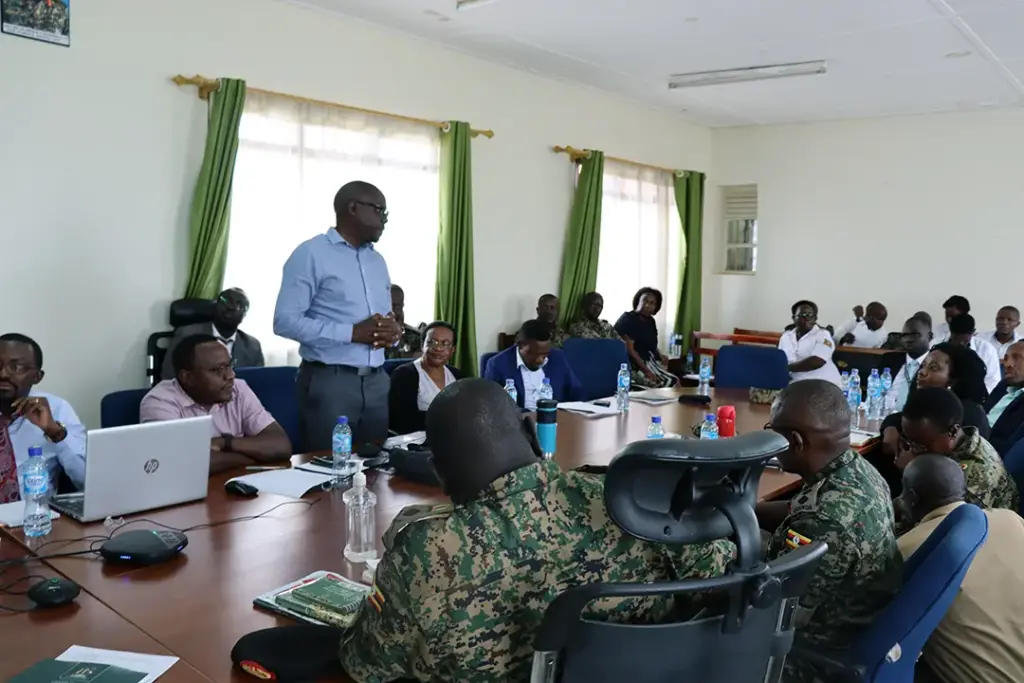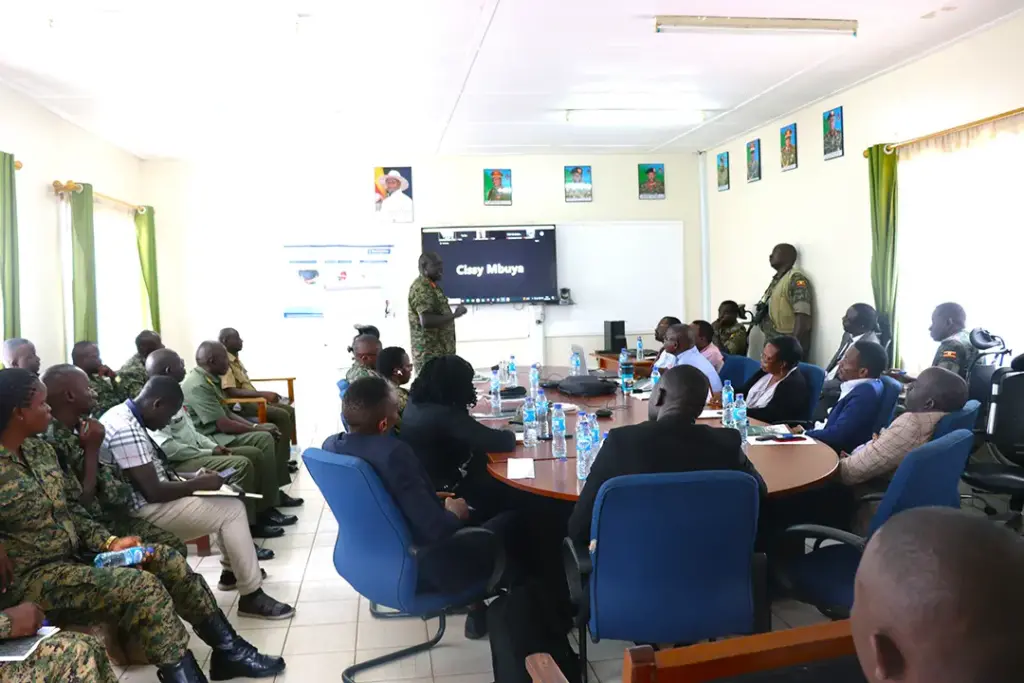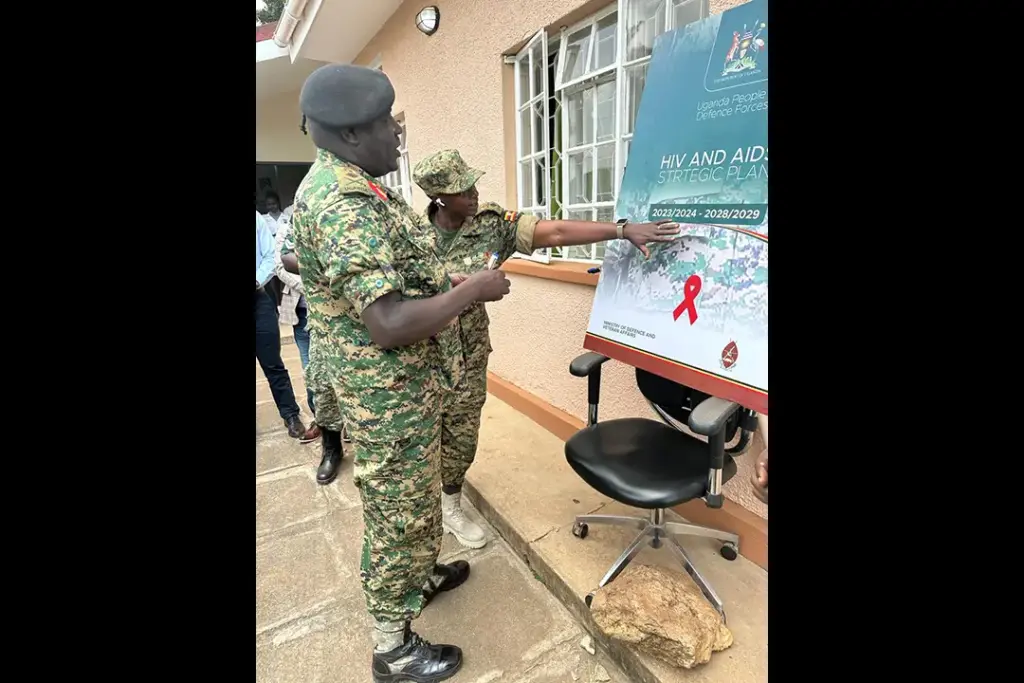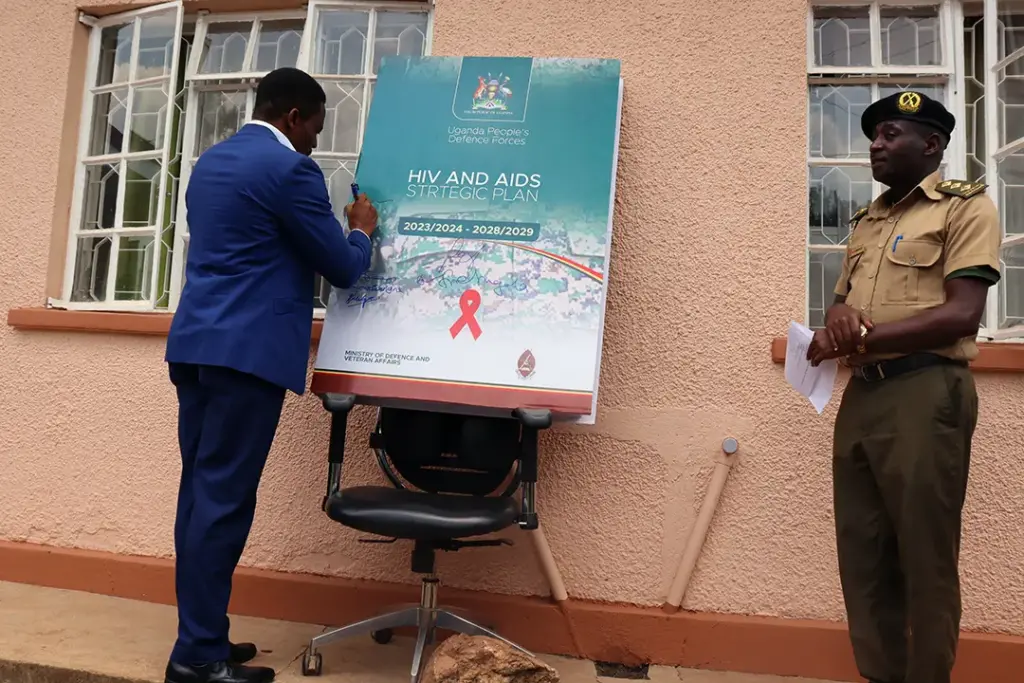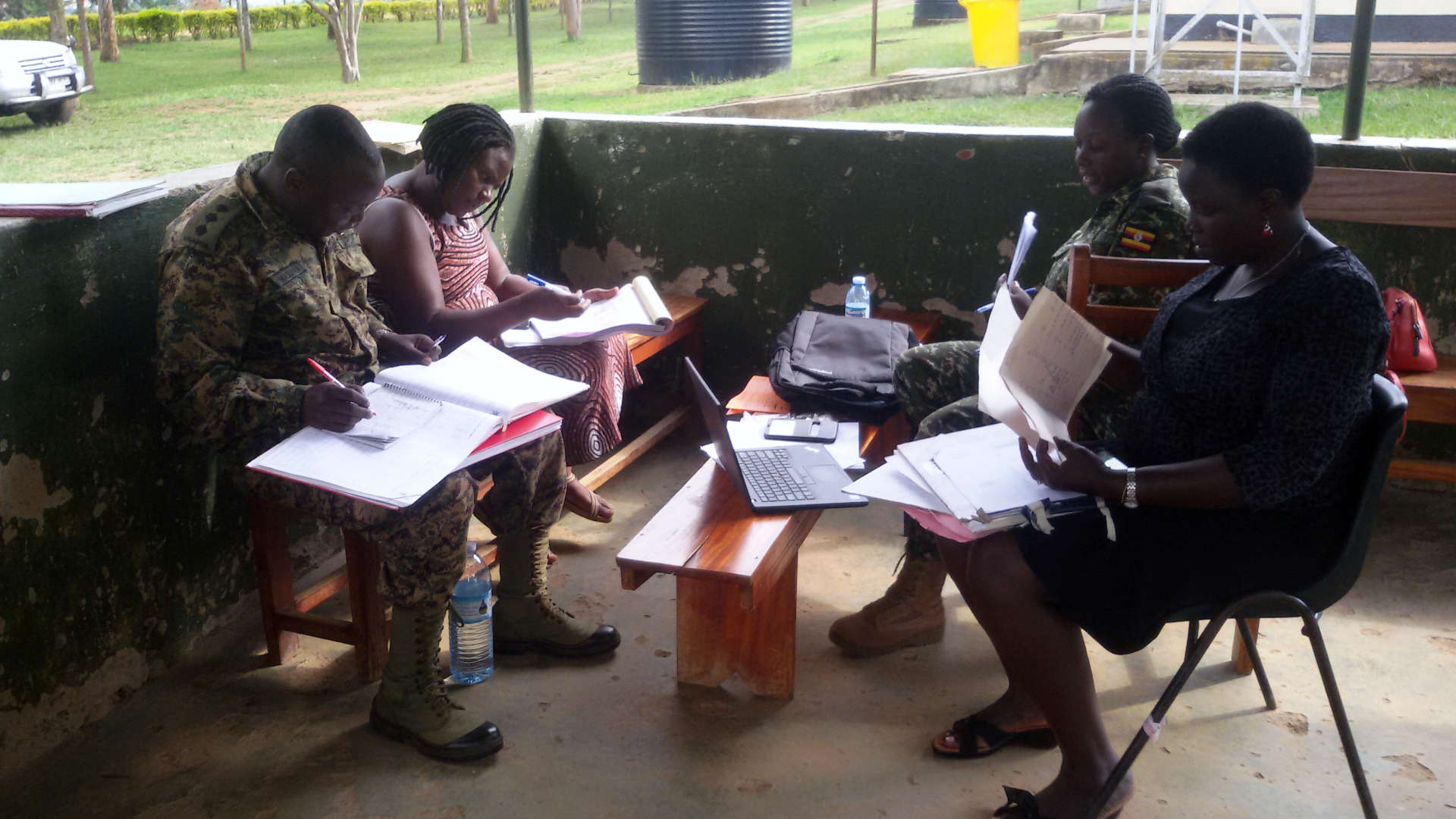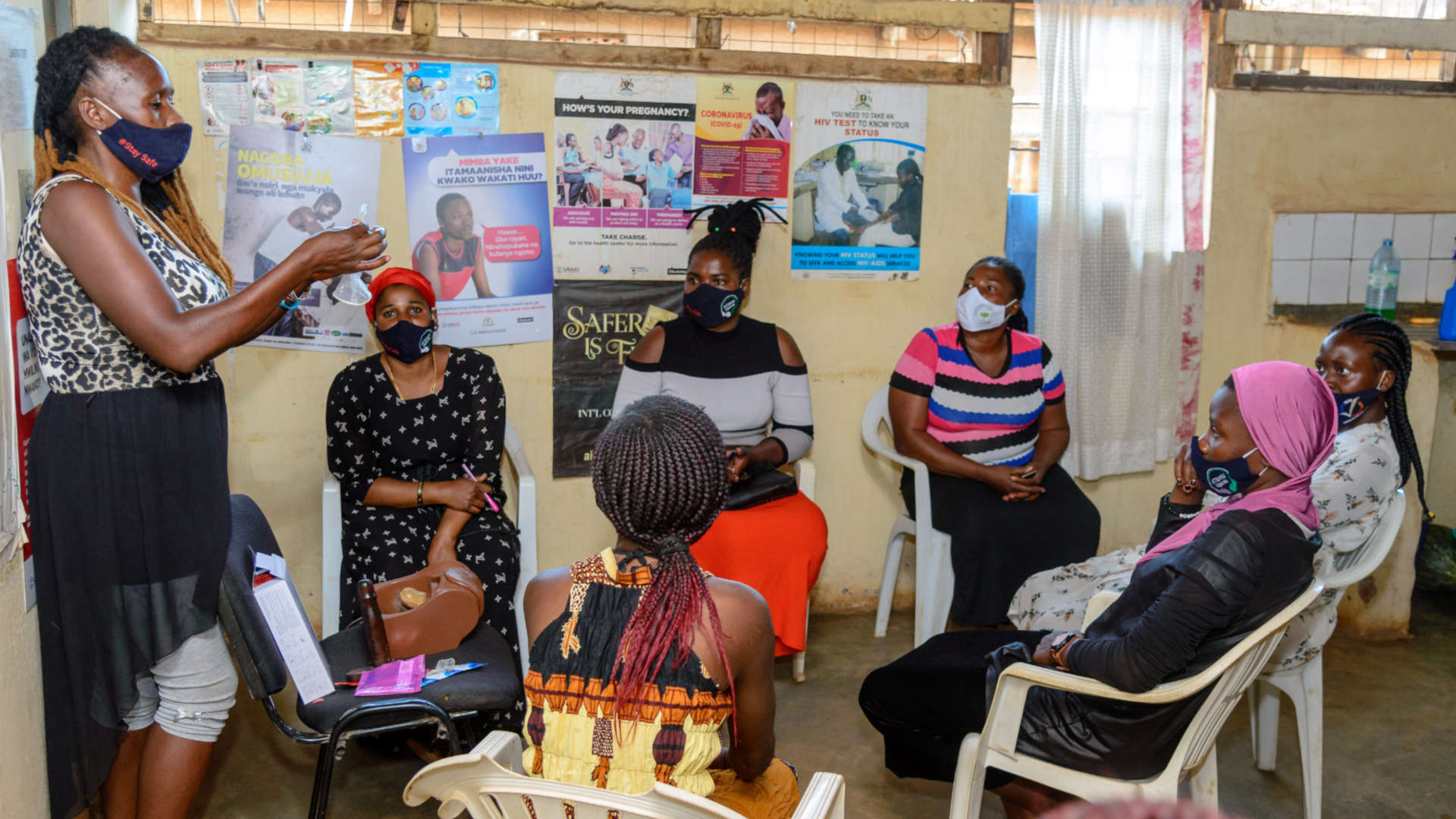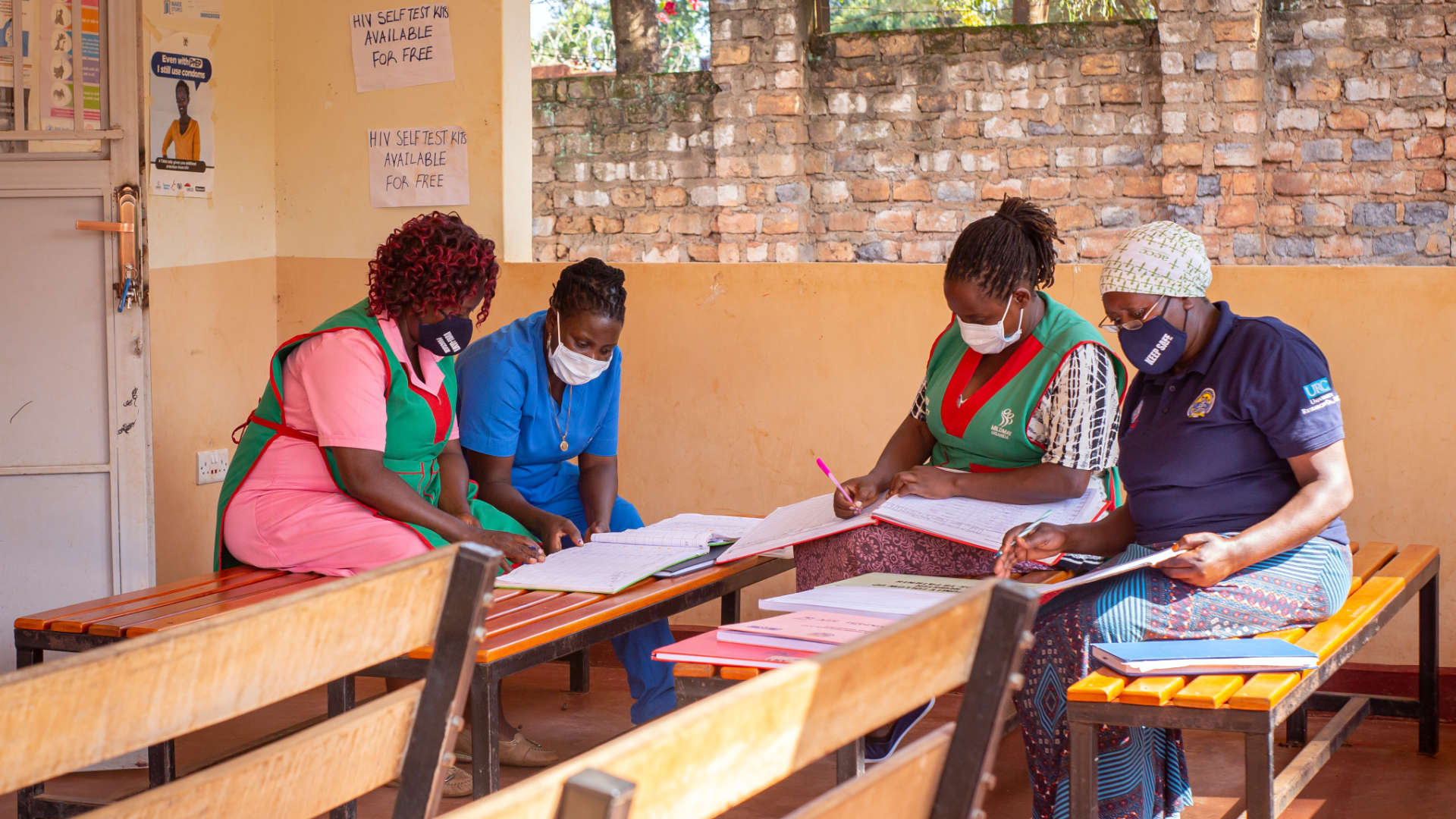The Uganda Peoples’ Defence Forces (UPDF) Chieftaincy of Medical Services (CMS) has launched the new five-year HIV and AIDS Strategic Plan – 2023/2024 to 2028/2029. The plan supports the Uganda Vision 2040 by ensuring that UPDF soldiers, their families, and people living around UPDF bases are healthy, productive, and free of HIV and AIDS.
The goal of the strategic plan is to contribute to ending HIV and AIDS as an epidemic by 2030. In turn, this would improve the productivity, inclusiveness, and well-being of all UPDF soldiers, their families, and people living in communities surrounding UPDF bases.
Paving the Way to Proactively Meet HIV and AIDS Targets
Over the past 10 years, UPDF did not have its own strategic plan to guide its long-term response to HIV and AIDS. Instead, its HIV and AIDS interventions and plans were guided by annual work plans that were informed by relevant national-level annual plans, including the National HIV and AIDS Strategic Plan, coupled with UPDF priorities. This prevented UPDF from maximizing its potential to plan for the longer term, with benefits including proactive planning, having a clear vision of goals, and operational efficiency.
The new strategic plan was developed through a consultative process. The DoD Uganda URC Project providing technical support with funding from the U.S. Military HIV Research Program (MHRP), through the Makerere University Walter Reed Project (MUWRP).As a starting point, the plan built on the Ministry of Defence and Veteran Affairs (MoDVA) UPDF HIV and AIDS Policy, in alignment with other national and international HIV and AIDS strategies.
Achieving Plan Goals Hinges on Strong Collaboration
The launch was officiated by the Deputy CMS Brigadier General Dr. Patrick Ocen, who pledged senior UPDF leadership support to ensure implementation of the plan. He emphasized the need to focus on priority interventions on clear timelines. He also noted that successful implementation of the plan hinges on stronger collaboration between UPDF and other stakeholders. The Deputy CMS called on all stakeholders, including Ministry of Health (MOH), Uganda AIDS Commission, and the U.S. DoD to collaborate and continue their support to address barriers to HIV care and end the HIV and AIDS epidemic by.
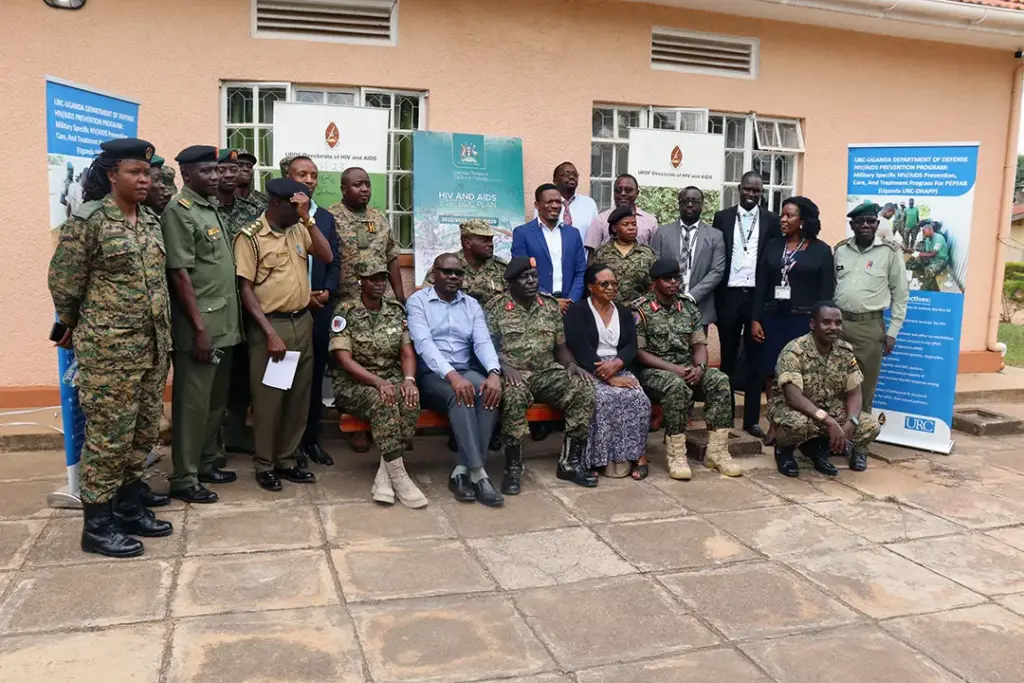
Brigadier General Dr. Patrick Ocen emphasized, “Everybody within the UPDF, other national stakeholders, and international stakeholders should be involved in the implementation of UPDF HIV and AIDS Strategic Plan. It should not be left to the DHIV. This plan is for the Uganda Ministry of Defence and Veteran Affairs, not just the UPDF DHIV.”
The hybrid event was attended by many of these internal and external stakeholders. The UPDF Directors of Medical Services, Biostatistics, Nursing, Personnel and Administration, Pharmaceuticals, and HIV and AIDS attended. Other representatives under the CMS included the UPDF Heads of Allied Health Professionals and Laboratories, as well as program officers and counselors within DHIV among others. The US DoD, US Embassy Kampala, Ministry of Health, Uganda AIDS Commission, and implementing partners including MUWRP, Infectious Diseases Institute, and DoD Uganda URC Project leadership also attended the launch.
The project pledged to support DHIV to disseminate the strategic plan to health facilities and relevant stakeholders. Moving forward the strategic plan will be a key reference document to guide the DoD Uganda URC Project’s interventions.
